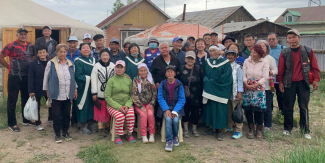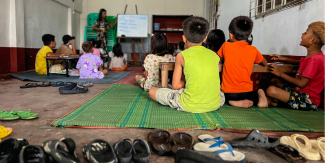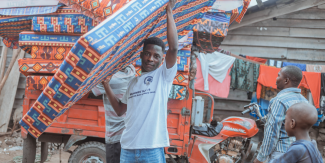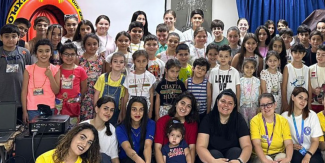AUGUST 7, 2025 ~ HUNTER STEINMETZ
This first-person account was written by Rev. Hunter Steinmetz, High School Pastor at Hermitage Church of the Nazarene in Old Hickory, Tennessee. It was originally shared in NCM Magazine. Read the rest of the issue here.
--
Luke 15 is Jesus’ response to a quiet murmur:
“This man eats with the wrong people.”
The Pharisees and teachers of the law were troubled by Jesus' choice of dinner companions. In response, Jesus tells three parables: a shepherd who leaves 99 sheep to search for the one that’s lost, a woman who celebrates after finding a lost coin, and a father who runs to welcome home a son who has squandered everything.
These parables flip the script. While the Pharisees are preoccupied with optics and religious appearances—“You’re condoning their behavior,” “You don’t care about holiness”—Jesus is concerned with something deeper: restoration and welcome. Where the Pharisees see categories and behaviors, Jesus sees names, faces, and the potential for transformation. It’s as if Jesus is saying, “Have you even asked their names?”
For the past ten years, I’ve served as the high school pastor at Hermitage Church of the Nazarene just outside Nashville, Tennessee. Each summer, we guide our students into encounters that challenge them to wrestle with what it means to follow Jesus in the real world. These experiences are designed to expose them to people whose lives look nothing like theirs. We want our students to reflect on how they will respond to the Spirit of God through God’s church, participating in God’s mission.
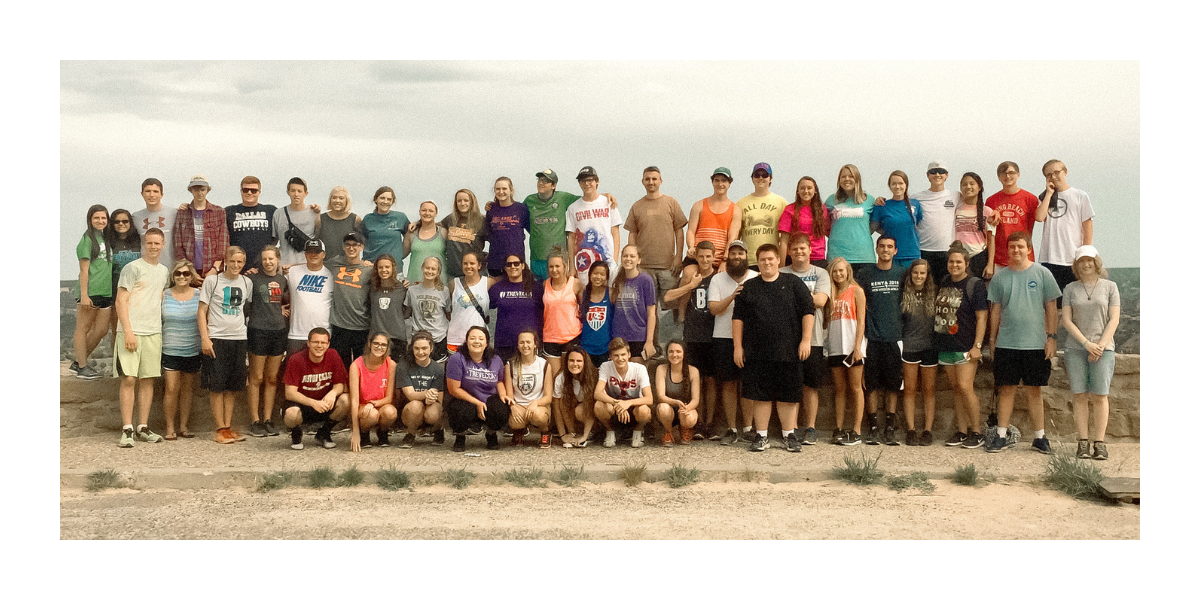
It’s easy to have an opinion on a situation you’ve never entered. But everything changes when an “issue” becomes a person—with a story and a name.
In the mid-2010s, the refugee crisis in Syria reached a breaking point. More than 4.8 million people were displaced by the civil war. Countries around the world scrambled to offer aid and resettlement. Turkey and Lebanon opened their borders to millions. The United States allowed about 12,500 Syrian refugees to resettle here.
That same year, we learned about the work happening at Cactus Nazarene Ministry Center in Cactus, Texas—a small town with a surprisingly diverse population due to refugee resettlement. We knew we couldn’t solve a global crisis but could choose how we responded. We decided we would not judge others based on political narratives.
We wanted to do what Jesus did: sit down at the table, learn names, listen to stories, and honor the dignity of those who had been displaced.
So we loaded up a 56-passenger bus with high school students and drove 18 hours to Cactus, TX. On the way there, I addressed the elephant in the room. I told our students plainly:
“We’re heading into a town filled with people from all over the world—South America, South Asia, Africa. You’re about to be in the most diverse place you’ve ever experienced. You’re here to serve, yes—but more than that, you’re here to listen.”
I challenged them: When you’re at a restaurant, a worksite, or in someone’s home, take a risk.
I asked them to listen closely and assume the posture of a learner. I told them to write down what they heard—on paper, on their phones, anywhere—because these were stories worth remembering. These weren’t statistics or policies—these were people.
Each evening, we debriefed as a group. I’d ask, “Whose story did you learn today?” Sometimes, it was a 13-year-old girl from Myanmar. Other times, it was a 30-year-old man from Haiti or a father from Somalia. The students leaned in, shared what they had heard, and reflected. And in those stories, something shifted.
What had been a “hot topic” political issue started to feel more like a theological one. How do we treat those caught in the middle of political, cultural, or religious tension? Do we hold them at arm’s length like the Pharisees did? Or do we pull up a chair, learn their name, and listen—like Jesus did?
We chose to listen, to be present, to be compassionate. Perhaps God used those moments to grow compassion in us.
Compassion doesn’t usually erupt out of nowhere. It grows—slowly, intentionally—when we create space to encounter someone else’s humanity. When our students listened to the stories of people who had fled violence or persecution, something softened. They weren’t forming opinions from the sidelines anymore; they were engaging in relationships.
The students didn’t return from Cactus with easy answers or political talking points. They came home with names and stories. They came back more aware of the sacred dignity each person carries, more awake to Jesus’ call to love without agenda.
In a world filled with noise, fear, and division, it’s easy to become numb. But when we ask, “Can you tell me your story?”—walls come down. Hearts open. Compassion has a chance to grow.
Media, politics, and social pressures shape our young people every day. The church has an opportunity—even a responsibility—to help shape that formation by inviting students into spaces where they see the humanity of their neighbors, where they can ask questions, listen closely, and experience the transforming love of Jesus in real time.
It might start with one simple question:
“Can you tell me your story?”


